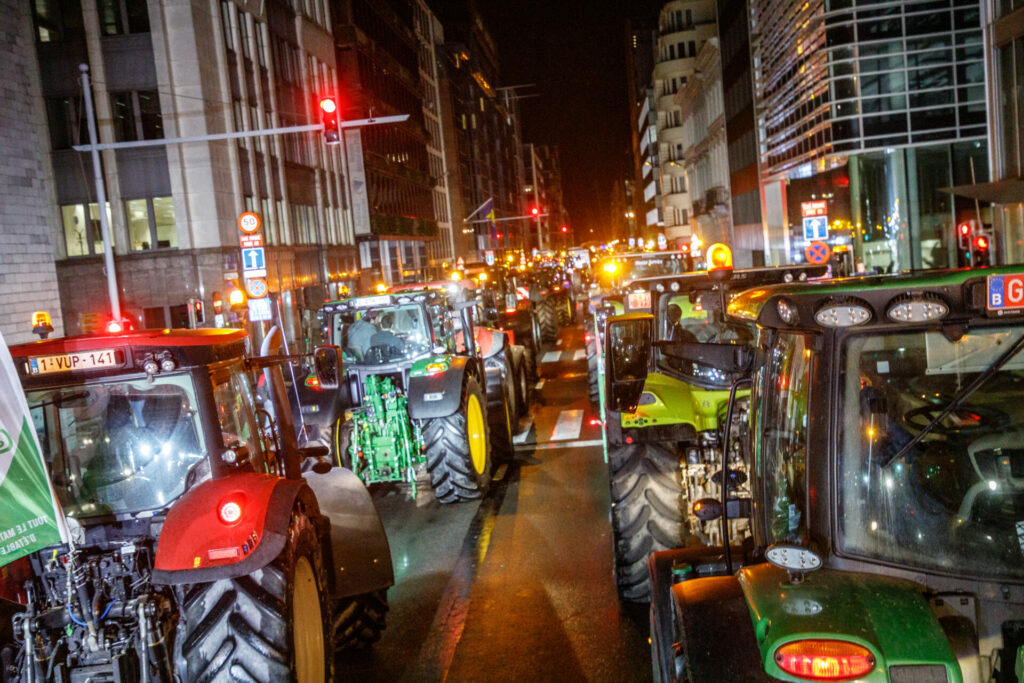Farmers across Europe are voicing their discontent through protests, with grievances ranging from the border levy to nitrogen regulations.
Despite the apparent diversity in reasons, a common thread of dissatisfaction runs deep, connecting farmers from Belgium to Romania. The protests which have caused havoc and major disruption across the continent in recent weeks may be linked to a "deeper malaise" with experts calling for a coherent and expansive policy approach to find a solution.
The dissatisfaction resonating among European farmers extends beyond Belgium, manifesting in protests in France, the Netherlands, Germany, Spain, Poland, and Romania, albeit for varying reasons.
Niels Debonne an assistant professor in the Environmental Geography department at the Institute for Environmental Studies at the Free University Amsterdam, is one of many experts to cite the inconsistency and lack of direction in European agricultural policy as a reason behind the discontent and has urged for a more cohesive strategy.
In a recent interview with VRT News, Debonne outlined the historical evolution of the discord faced by farmers, stemming from conflicting directives from governmental regulations and corporate entities within the agricultural supply chain. While past objectives prioritised eradicating hunger and enhancing productivity, contemporary challenges such as climate change and environmental preservation demand a paradigm shift in policy.
Circular agriculture
The complexity of modern agricultural demands leaves farmers grappling with ambiguity regarding their roles and responsibilities. The need for sustainability, affordability, and efficiency creates a conundrum for farmers, who struggle to navigate conflicting demands without clear guidance from policymakers.
In the VRT interview, the professor advocated for a more unified and decisive policy framework, emphasising the urgency of addressing climate and environmental concerns. He suggested embracing practices like circular agriculture and organic farming as potential solutions, albeit requiring substantial investments and efforts from farmers.
Moreover, Debonne stressed the importance of expanding policy focus beyond the farmer to encompass the entire agricultural supply chain. He questioned why the burden of organic farming falls solely on farmers when supermarkets, banks, and fertiliser companies play pivotal roles in shaping agricultural practices.
Ultimately, experts including Debonne caution against treating farmers as mere pawns in policymaking, urging Europe to exercise its influence responsibly. Failure to do so risks further alienating farmers and exacerbating existing tensions within the agricultural sector.

